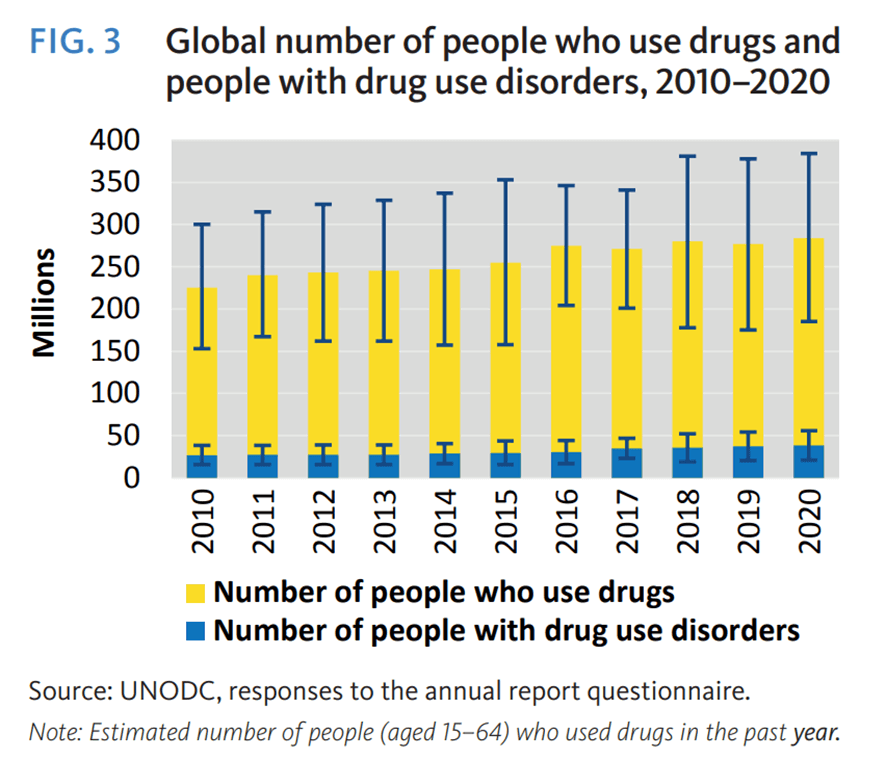In regards to consumption, the World Drug Report of 2022 estimated that in 2020 around 284 million people worldwide between the ages of 15 and 64 had used some unregulated substance in the last year, representing an increase of 26% compared with the figure in 2010. Such numbers highlight the ineffectiveness of the current policies in reducing the prevalence of unregulated drugs.
The same report also shows another key aspect that current drug policies ignore: the majority of people who use substances, whether these are regulated or not, do not develop a problematic pattern of use. In problematic use cases the traditional focus on punitive measures does not treat the problem by the root, and instead simply imposes punishments on the individual, which leads to lasting personal and social problems rather than solving them.


At Kykeon Analytics, we recognize the ineffectiveness of the current paradigm of prohibition and are aware of the need for urgent change both nationally and globally. We therefore join the movement to reform drug policy with a vision of a post-prohibitionist world where substances are accessed with the same guarantees of safety and health as exist for any other product intended for human consumption.
In fact, the United Nations Office on Drugs and Crime acknowledges a number of `unintended consequences' in its 2008 World Drug Report, such as the creation of a huge criminal market, the displacement of production, and the stigmatization of people who consume drugs.
